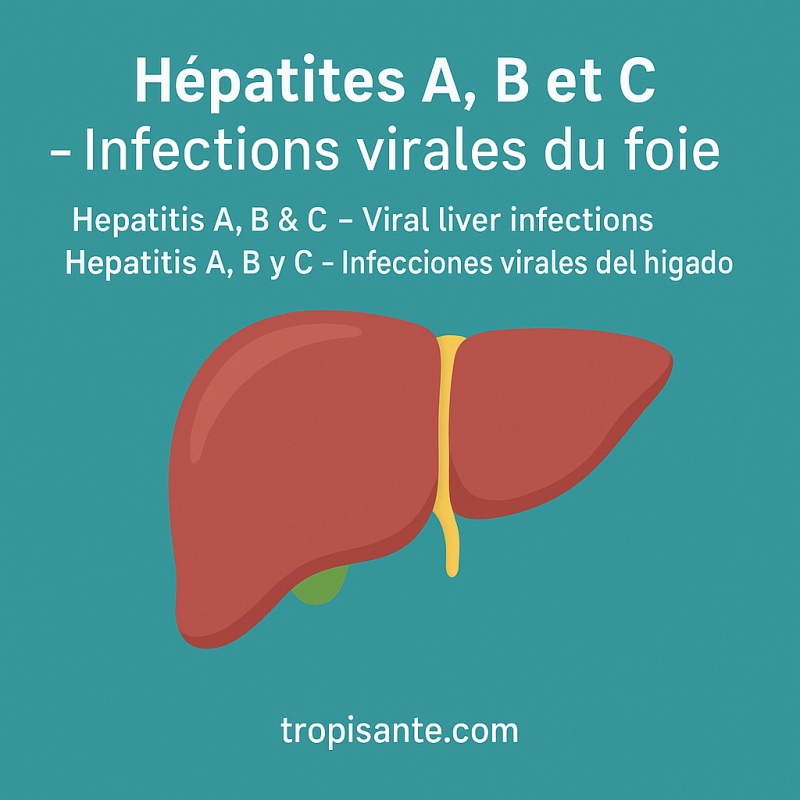Hepatitis A, B and C

Hepatitis A, B and C
Introduction
Viral hepatitis A, B, and C are liver infections caused by three different viruses. They are a major global public health concern, as they can lead to acute or chronic liver inflammation, and in severe cases, cirrhosis or liver cancer.
Types of hepatitis
-
Hepatitis A: transmitted via the fecal-oral route (contaminated water or food). Usually acute and benign, it does not lead to chronic disease.
-
Hepatitis B: transmitted through blood, sexual contact, or from mother to child. It can become chronic and cause serious complications.
-
Hepatitis C: mainly transmitted through blood. It often develops into a chronic infection, with a high risk of cirrhosis and liver cancer.
Symptoms
-
Severe fatigue
-
Mild fever
-
Loss of appetite, nausea
-
Abdominal pain
-
Jaundice (yellowing of skin and eyes)
-
Dark urine, pale stools
Treatments and solutions
⚕️ Medical options
-
Vaccination available for hepatitis A and hepatitis B
-
Specific antiviral treatments for hepatitis B and hepatitis C
-
Regular medical monitoring to prevent complications
-
Liver transplantation in the most severe cases
🌿 Complementary and comfort solutions
-
✅ Liver supplements (milk thistle, artichoke)
👉 https://www.amazon.fr/dp/B07QYVZ6N2?tag=tropisante-21 -
✅ Herbal teas for liver and digestive wellness
👉 https://www.amazon.fr/dp/B00I9X6Y0Q?tag=tropisante-21 -
✅ Practical books on liver health and nutrition
👉 https://www.amazon.fr/dp/2294751632?tag=tropisante-21 -
✅ Digestive comfort herbal blends
👉 https://www.amazon.fr/dp/B01N5S1K8Z?tag=tropisante-21
Prevention
-
Vaccination against hepatitis A and hepatitis B
-
Proper hygiene (hand washing, safe drinking water)
-
Using condoms to reduce sexual transmission risks
-
Early screening and treatment for viral hepatitis
-
Avoiding the sharing of items at risk (needles, razors)
Conclusion
Hepatitis A, B, and C are major public health challenges. Vaccination, prevention, and early detection are the best strategies to reduce the risk of severe complications.
👉 Subscribe to Tropisante to get our next health articles in French, English, and Spanish!
Legal notice
Tropisanté participates in the Amazon EU Associates Program, an affiliate program designed to allow websites to earn fees by linking to Amazon.fr.
.

